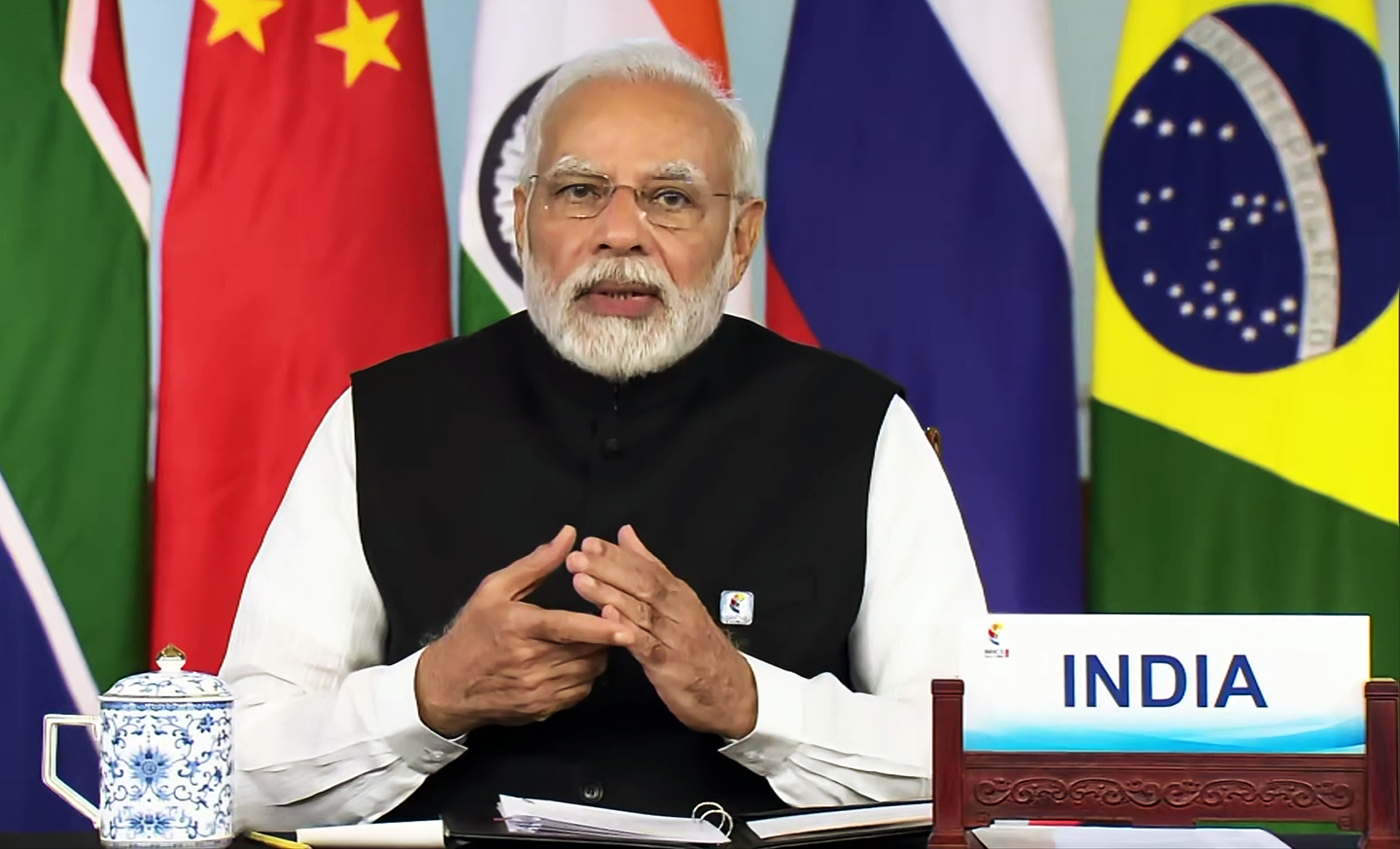JOHANNESBURG
With geopolitical power games intensifying over control and expansion of BRICS, Prime Minister Narendra Modi will travel to Johannesburg to participate in the largest-ever BRICS summit of emerging economies. Raising the bar, South African President Cyril Ramaphosa has invited the leaders of 67 countries to the summit, including 53 African countries, making it a showcase summit of the Global South.
PM Modi’s decision to participate in the Johannesburg summit wasn’t an easy call to make as he is personally supervising preparations for the biggest and most high-profile G-20 summit of the world’s wealthiest countries India will host barely a fortnight after the BRICS summit. Any travel abroad would distract from his full concentration on the G-20 summit, in which he has invested enormous political and diplomatic capital. But in the end, after some careful cost-benefit analysis, PM Modi decided in favour of attending the first in-person BRICS summit being held after a hiatus of three years. The reason was compelling: BRICS was too important to be left at the hands of those who want to make this forum of emerging powers a geopolitical contest between the West and the rest.
BRICS EXPANSION: WHO IS IN, WHO IS OUT?
The planned expansion of BRICS will be the most important issue on the BRICS summit agenda in Johannesburg (22-24 August). Ahead of the summit, the western spin machine has tried to create an impression that India is blocking the expansion of BRICS and speculated that PM Modi was not going to Johannesburg as he didn’t want to be part of the expansion agenda, which China was trying to manipulate. But there is hardly any truth in such spin-doctoring as India does not want to stand in the way of making BRICS more representative of the emerging world. Every BRICS member has its favourites for the much-coveted membership of the grouping, but after some serious consultations, BRICS countries are close to a consensus on criteria for admitting new members. These criteria include the size of GDP (minimum $400 billion cap); any aspiring country should be an emerging economy; potential/aspiring countries should not have sanctions against them (by this criterion, Iran is excluded for now).
India has also advocated that any aspiring member of BRICS should be open to migrants as India wants new countries to be inclusive and friendly to foreigners. In this regard, the UAE fits the billing. The only sticky issue is support for UNSC expansion and UNSC reforms by any potential new member. While India, South Africa and Brazil want all candidate countries to support United Nations Security Council expansion, China is opposed to this criterion. India has conveyed its choice of new members to other BRICS countries, and other countries seemed to have converged on Indonesia, Saudi Arabia, Argentina, and Egypt, but a final decision will take some time.
Negotiations are going down the wire as sherpas of BRICS countries are currently brainstorming in Johannesburg to forge consensus on criteria, which will pave the way for expansion of the BRICS grouping. Whichever shape the expansion takes, one thing is certain: BRICS will be no longer the same as it adds new members to the BRICS family. Going forward, India’s main challenge will be preventing Chinese dominance within BRICS, and shape a more inclusive BRICS representing the interests of the Global South.
IT’S TIME FOR AFRICA
South Africa’s overarching theme for the summit is “BRICS and Africa: Partnership for Mutually Accelerated Growth, Sustainable Development, and Inclusive Multilateralism,” making the African continent the centrepiece of the Johannesburg summit. With the leaders of around 40 African countries in attendance, it will also be a major opportunity for India to reach out to the vibrant African continent. In this regard, PM Modi will hold an Africa outreach meeting with the leaders of several
MAKING GLOBAL SOUTH COUNT
The Johannesburg summit will see the elevation of the Global South in the BRICS agenda, a move that will animate a new and expanded BRICS that will take shape in the coming years. In his remarks at the BRICS summit, PM Modi will highlight India’s ongoing efforts to place the interests of Africa and the Global South on the global agenda, including in the G-20 summit New Delhi will host on 9-10 September. With a large number of countries from the Global South expressing interest in joining the BRICS, BRICS 2.0 will have a distinctive South stamp.
The focus on the Global South links up with the crucial agenda of the reform of global governance architecture that underpins the BRICS foundational agenda. In his remarks at the BRICS summit, PM Modi will push strongly for democratization of the international order, including reform and expansion of the UN Security Council. The joint BRICS formulation on UNSC reforms has remained frozen for the last 15 summits. Russia and China have not yet come out overtly in support of the UNSC candidacy of India, Brazil, and South Africa. If the Johannesburg summit comes out with more categorial support by Russia and China for UNSC aspirations of India, Brazil, and South Africa, it will be a major breakthrough for BRICS solidarity.
Manish Chand is CEO, Centre for Global Insights India, a think tank focused on global affairs and India Writes Network. He is Editor-in-Chief, India and the World, a journal on international affairs.

